West Virginia Rental Agreement

A West Virginia rental agreement is a legal contract between a landlord overseeing a rental property and a tenant who wishes to use it. West Virginia landlord-tenant law governs these agreements; rental terms must be within the limits allowed by law.
West Virginia Rental Agreement Types
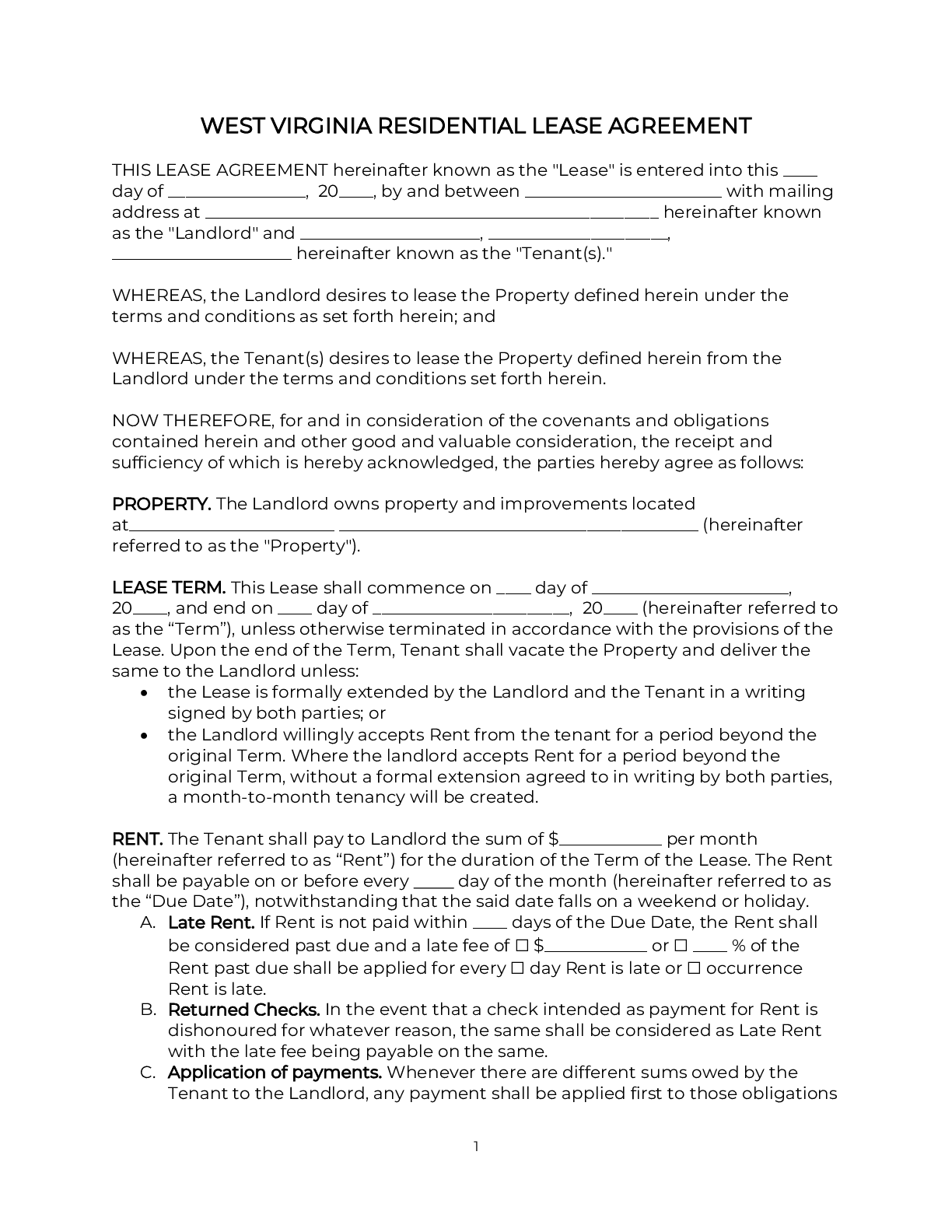
A West Virginia residential lease agreement (“rental agreement”) is a legal contract for a tenant to rent a residential property from a landlord, subject to terms and conditions agreed by all parties.
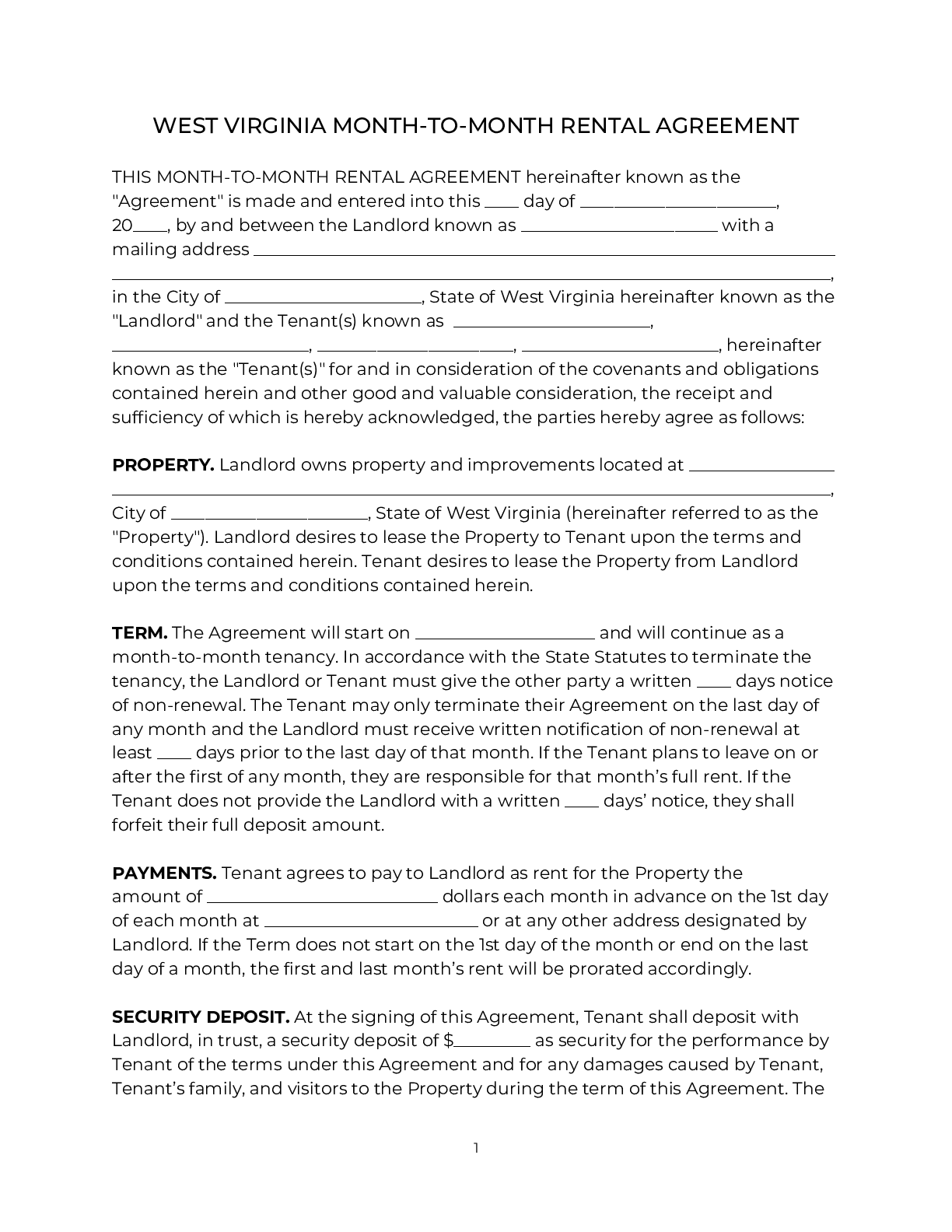
A West Virginia month-to-month lease agreement is a contract (not necessarily written) where a tenant rents property from a landlord. The full rental term is one month, renewable on a month-to-month basis.
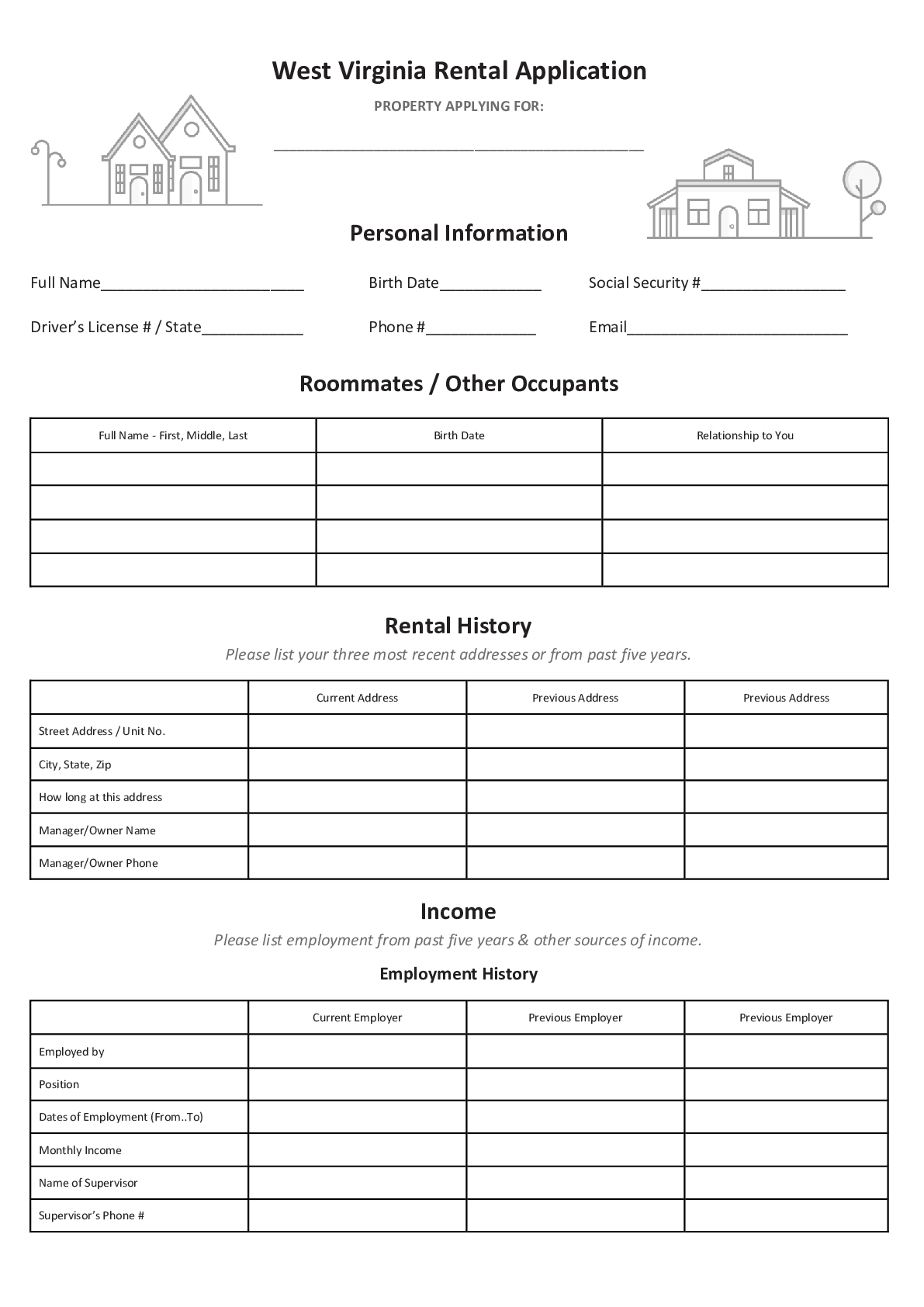
West Virginia landlords may use a rental application form to screen prospective tenants. A rental application collects information relating to finances, rental history, and past evictions.
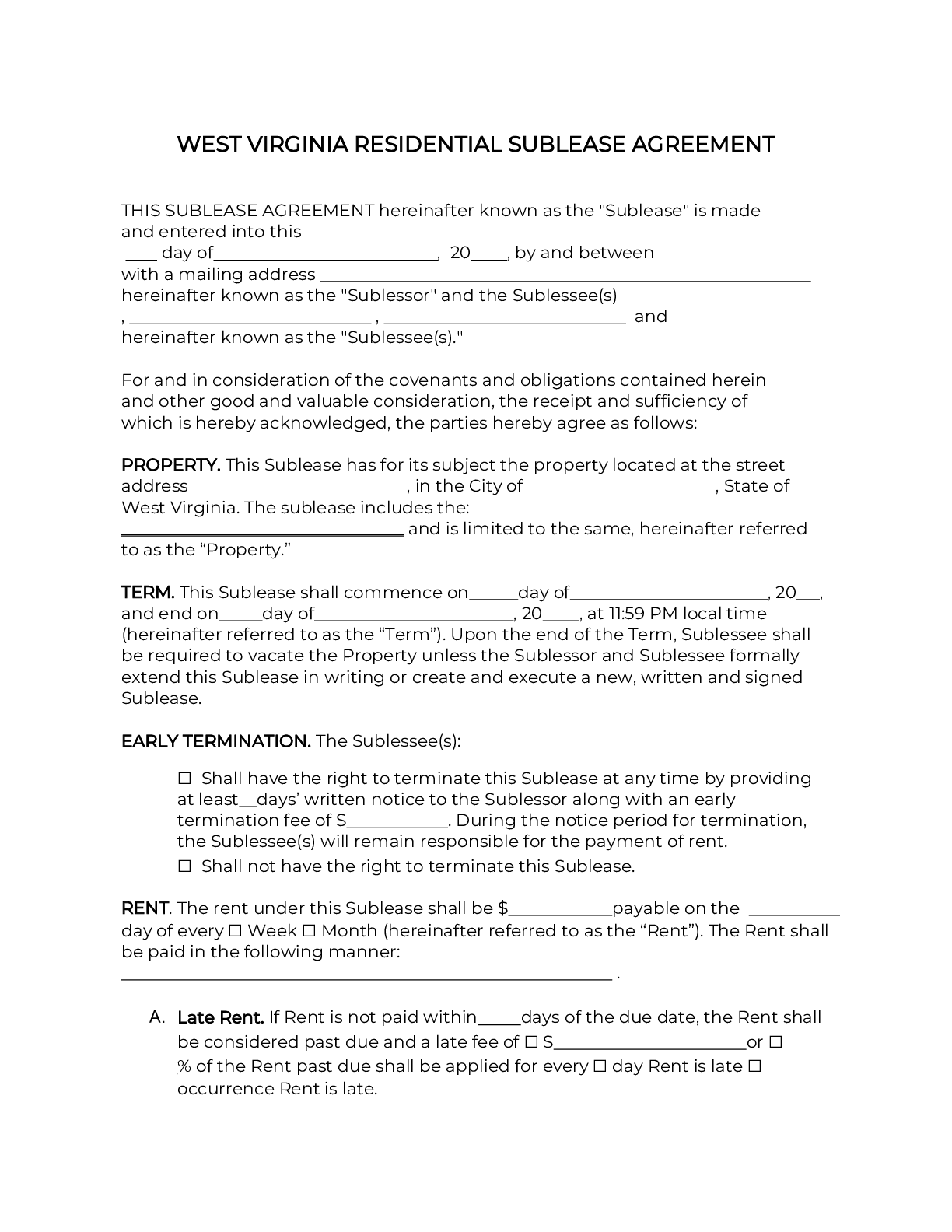
A West Virginia sublease agreement is a legal contract where a tenant ("sublessor") rents (“subleases”) property to a new tenant (“sublessee”), usually with the landlord’s permission.
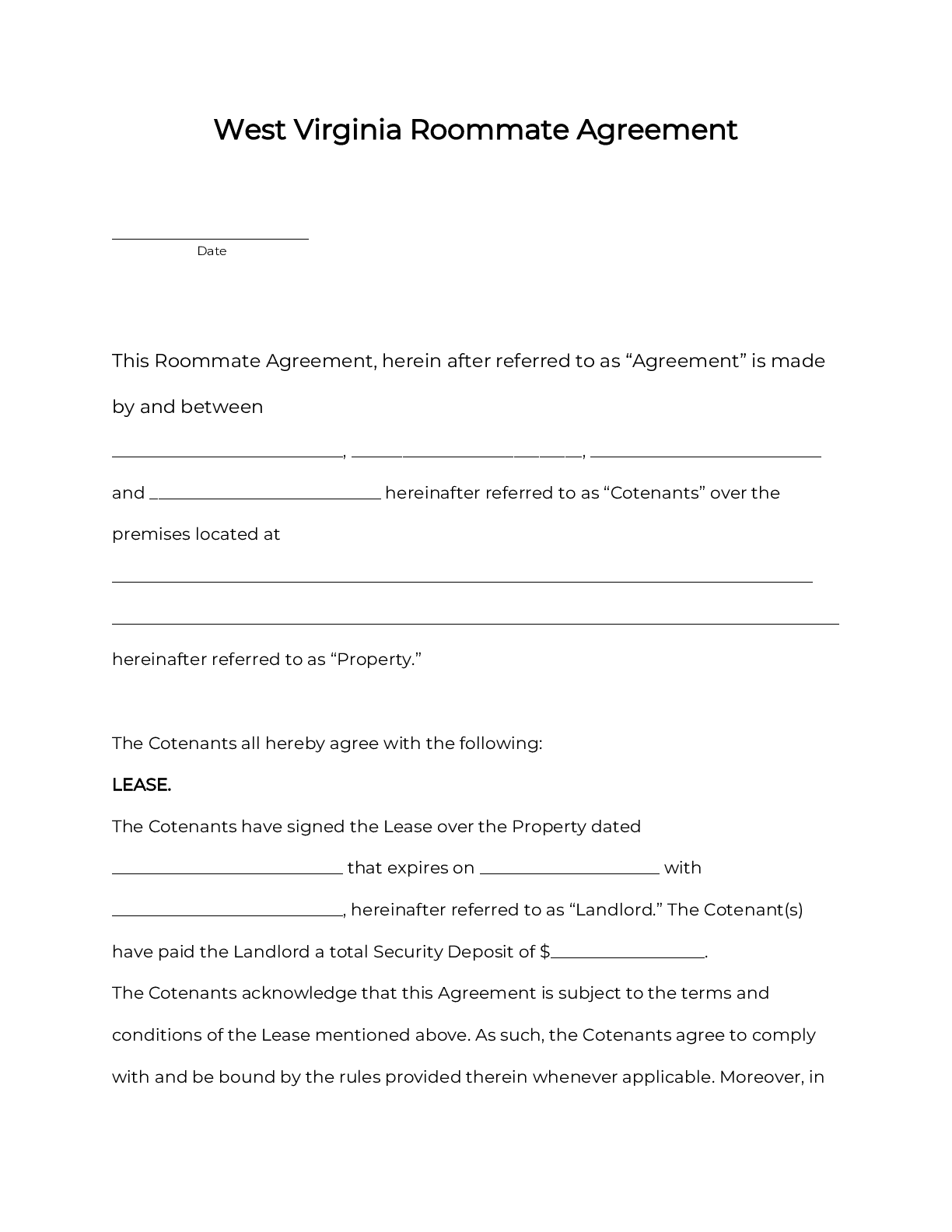
A West Virginia roommate agreement is a legal contract between two or more people (“co-tenants”) who share a rental property according to rules they set, including for things like splitting the rent. This agreement binds the co-tenants living together, and doesn’t include the landlord.
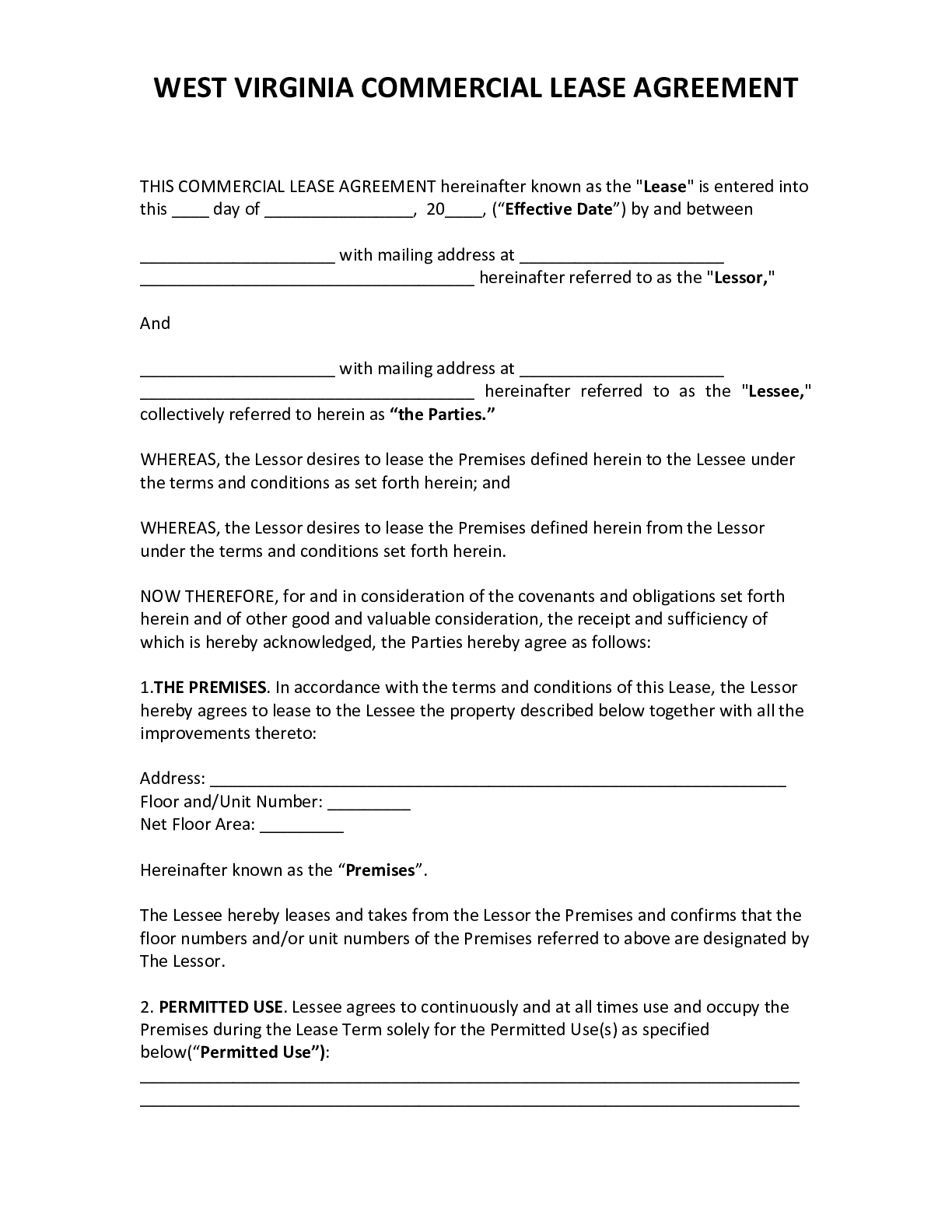
A West Virginia commercial lease agreement is a legal contract arranging the rental of commercial space between a landlord and a business.
West Virginia Required Residential Lease Disclosures
- Lead-Based Paint Disclosure(required for some leases) – For any property built before 1978, federal law requires that a West Virginia residential lease must contain a lead-based paint disclosure with an EPA informational pamphlet, plus notice of any lead hazards on the property.
To learn more about required disclosures in West Virginia, click here.
West Virginia Landlord Tenant Laws
- Warranty of Habitability – West Virginia landlords must provide rental property which has basic health and safety features like plumbing, heating, and sound building structure. If tenants request necessary repairs, the landlord must do them within a “reasonable” time, or else the tenant can terminate the lease and/or sue the landlord. West Virginia doesn’t let tenants repair and deduct, or withhold rent.
- Evictions – West Virginia landlords may evict tenants for a number of reasons including default on rent, lease violations, or illegal acts. Depending on the type of eviction, a landlord might have to serve the tenant with a particular notice to quit. In West Virginia, evictions usually take 1-3 months.
- Security Deposits – West Virginia law does not set a maximum cap on the amount of a security deposit. After a lease ends, any funds not deducted from the security deposit must be returned within 60 days (45 days, if a new tenant moves in immediately).
- Lease Termination – West Virginia tenants may terminate a month-to-month lease with one month’s advance notice. To terminate a fixed-term lease before the term ends, a tenant generally must experience landlord harassment, unit uninhabitability, domestic abuse, or active military duty.
- Rent Increases and Fees – West Virginia does not set a maximum cap on rent increases, limit them to particular economic situations, or require advance notice before the increase is announced. There is likewise no cap on late fees, but returned check fees are capped at $25.
- Landlord Entry – West Virginia landlords have the right to enter rental property at reasonable times, for purposes related to the tenancy like repairs and inspections. They must give a reasonable amount of advance notice (customarily at least 24 hours) before entering, unless it’s an emergency.
- Settling Legal Disputes – West Virginia allows landlord-tenant disputes valued at less than $10,000 in small claims courts. Since these are magistrate courts, they typically can only resolve disputes related to money. Eviction isn’t usually available in small claims.
To learn more about landlord tenant laws in West Virginia, click here.








